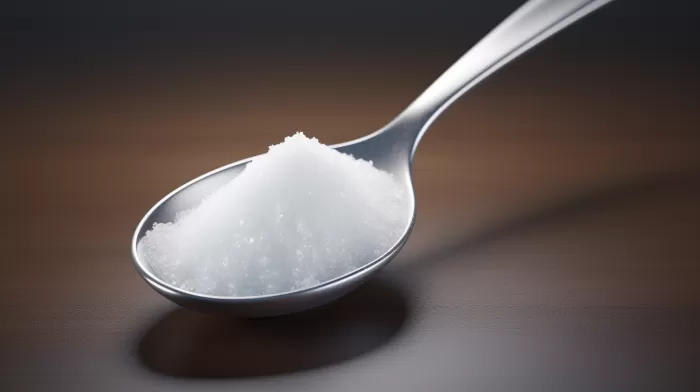A little change can go a long way, and this applies perfectly to the amount of salt consumed daily. Many health organizations and experts have been urging people to cut down on their salt intake, and for good reason: just reducing your daily salt intake by a single teaspoon could have a massive impact on the risks of stroke, heart attacks, and other diseases.
Sodium Overload: An Unwanted Reality
Excess sodium consumption has been closely associated with the high-fat diets often found in many American households. However, it is essential to understand that this issue extends beyond the United States and affects people worldwide. The problem is so widespread that the World Health Organization (WHO) has issued their own recommendations, urging individuals to curb their salt consumption by around one teaspoon per day.
This seemingly small change could lead to significantly better cardiovascular health for the general public. A study conducted by the Warwick Medical School outlines just how impactful this small reduction in sodium intake could be.
Impressive Benefits: Proven Results
According to the study’s findings, a 3-gram reduction in salt consumption in the U.K. could lead to 8,000 fewer cases of stroke, as well as 12,000 fewer incidences of coronary heart disease deaths. The impact on salt consumption in the U.S. is even more astounding: cutting down on sodium could potentially prevent 12,000 cases of coronary artery disease. Additionally, there could be 66,000 fewer instances of stroke and 99,000 fewer heart attacks.
The advantages aren’t just confined to individual health; the researchers also stated that this improvement in public health could save a staggering $24 billion per year in healthcare costs.
In the words of the study’s lead author, Francesco Cappuccio, “Prevention implemented through food reformulation and effective voluntary, market intervention or mandatory action throughout the industry is what needs to happen with society, governments, academia and health organizations all needing to play a part.”
Making the Switch: Simple Ways to Reduce Sodium Intake
While gradual changes in salt consumption are always beneficial, it’s essential to know precisely how to put those changes into action. Here are a few simple yet effective ways to reduce your daily intake of sodium:
- Cook from scratch: One of the simplest yet most effective ways to control your salt intake is by preparing your meals from scratch. You’ll have complete control over the ingredients and amount of salt that goes into your dishes.
-
Use alternative seasonings: Instead of salt, try using herbs, spices, and other seasonings to add flavor to your meals. Not only will you cut down on sodium, but you’ll also discover delicious new flavors in the process.
-
Choose fresh over processed: Most processed foods are typically very high in sodium. Opting for fresh fruits, vegetables, and lean meats can make a significant difference in your salt intake.
-
Read food labels: Pay attention to food labels when shopping, and choose products with reduced sodium levels whenever possible.
-
Eat out wisely: When dining out, ask your server about low-sodium options on the menu, or request that your meal be prepared with less salt.
In conclusion, making small but meaningful changes to your daily salt consumption can lead to significant improvements in both individual and public health. Following the WHO’s recommendation of reducing salt intake by just one teaspoon a day may seem like an insignificant change, but the impact on your health and well-being – as well as the potential reduction in healthcare costs – makes it a worthwhile endeavor. Start making a conscious effort to reduce your salt intake today, and your body will thank you in the long run.



